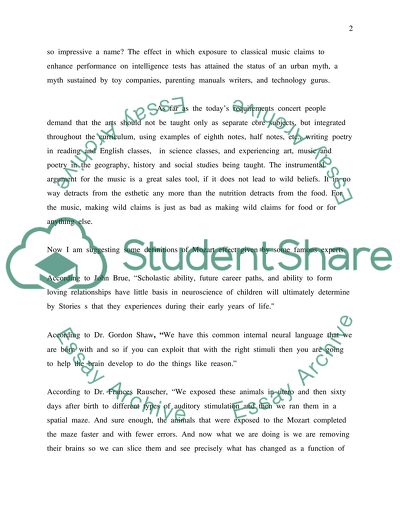Cite this document
(Mozart Effect in Action Essay Example | Topics and Well Written Essays - 1750 words, n.d.)
Mozart Effect in Action Essay Example | Topics and Well Written Essays - 1750 words. https://studentshare.org/psychology/1510081-mozart-effect
Mozart Effect in Action Essay Example | Topics and Well Written Essays - 1750 words. https://studentshare.org/psychology/1510081-mozart-effect
(Mozart Effect in Action Essay Example | Topics and Well Written Essays - 1750 Words)
Mozart Effect in Action Essay Example | Topics and Well Written Essays - 1750 Words. https://studentshare.org/psychology/1510081-mozart-effect.
Mozart Effect in Action Essay Example | Topics and Well Written Essays - 1750 Words. https://studentshare.org/psychology/1510081-mozart-effect.
“Mozart Effect in Action Essay Example | Topics and Well Written Essays - 1750 Words”. https://studentshare.org/psychology/1510081-mozart-effect.


